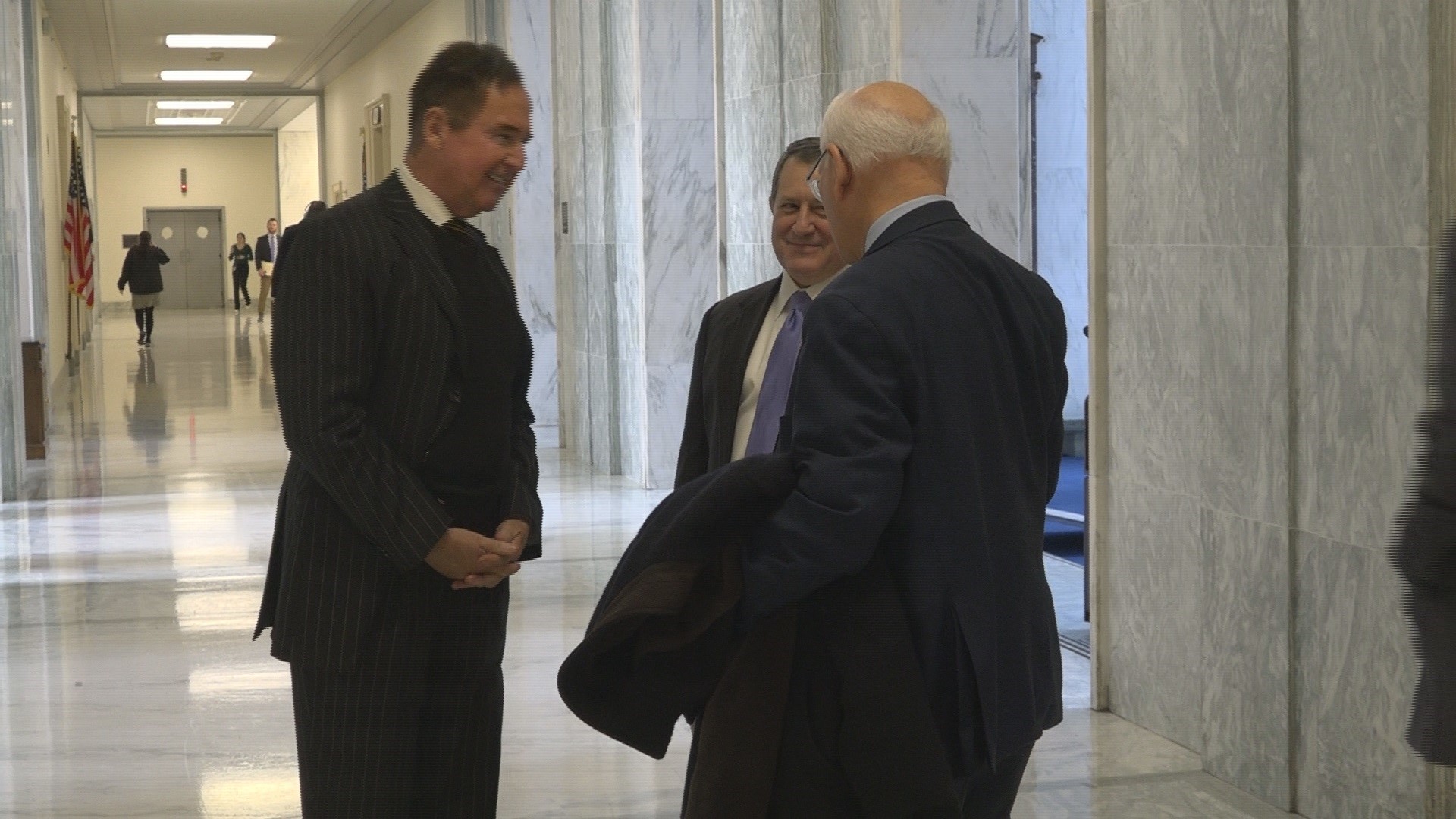WASHINGTON, D.C., USA — After nearly two decades in Washington, U.S. Rep. Brian Higgins is coming home.
Friday was his last day as the representative of the 26th Congressional District. As he takes his last steps through the halls of Congress, he greets longtime coleagues, and is clearly proud of his time here and the leadership he was able to provide.
"I'm filled with gratitude first and foremost to a community that had the confidence to send me to Washington after 9 elections," Higgins said.
Congressman Higgins and I enjoyed a bit of a full circle type of moment. It seems like yesterday, but it was 19 years ago that I visited the then-freshman congressman in his brand new D.C. office. I asked him if he ever could have imagined the career he would build.
"You try, you don't anticipate what you're gonna be able to do, but I think what we try to do is identify what's important, find sustainable focus, and produce desired outcome. Have vision, but be prepared to do the hard work necessary to make that vision real," Higgins said.
He was full of ambition and ideas to fight for his hometown, but also laser-focused.
"I didn't come here to change the world, I came to change my community," he said.
And his first focus was on the shores of Lake Erie. Even before going to Washington as a NYS Assemblymember led Buffalo's first waterfront project of its kind in 1998 with $4 million funding he secured through state, county and city sources.
"You know you think about people have been denied access to the waterfront for 75 years," Higgins said.
And so began waterfront development, starting at Gallagher Beach.
"It helped to redefine the region, and I think that that takes care of a lot of problems," he said.
One of his biggest wins was championing the New York Power Authority's relicensing agreement. In doing so, he won a $279 million federal settlement, which served as the nest egg that financed most of Buffalo's waterfront redevelopment, from Canalside to the Outer Harbor. From the Ohio Street transformation to the removal of the Robert Moses Parkway.
His main concern was always bringing home the bacon for Western New York.
"It's not about Wall Street, it's not about Main Street. It's about the neighborhood streets where real people live in struggle every day and at the end of the day they still find a reason to believe," Higgins said.
But he does admit that, year after year, it has become increasingly difficult to make a difference in D.C.
"This is a bad patch, you know," he said. "Votes being canceled because the majority can't get the votes that they need from their own party to pass their own legislation. So you're here, more time, doing less work. We're not advancing the country in a way that is beneficial to the largest number of people.
"This institution is not practicing real well at this moment again, it will come back. There are a lot of good people here. There are a lot of very talented people here. There are very there a lot of well-intentioned people here. But the system just kind of chews you up and spits you out."
It made him reevaluate his priorities, so when the opportunity arose for him to take the reigns at Shea's Performing Arts Center, he saw another chance to have an impact on Western New York.
But he won't be taking any time off. While he wraps up a congressional career Friday, he begins his new job at Shea's on Monday.

